How to find out the water hardness for a dishwasher
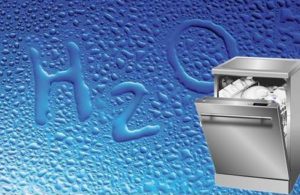 For a dishwasher, as well as for a washing machine, a very important condition for the washing result is the hardness of the tap water. Manufacturers of tablets and dishwashing powders claim that they soften water, but in practice this is not always confirmed. The fact is that water hardness may differ in different cities of the country, and tablets alone may not be enough to combat this. Our story will be about how to find out the hardness of water and how to soften it for a dishwasher.
For a dishwasher, as well as for a washing machine, a very important condition for the washing result is the hardness of the tap water. Manufacturers of tablets and dishwashing powders claim that they soften water, but in practice this is not always confirmed. The fact is that water hardness may differ in different cities of the country, and tablets alone may not be enough to combat this. Our story will be about how to find out the hardness of water and how to soften it for a dishwasher.
Hard water: how it affects your dishwasher
Water is called hard or soft depending on the chemical composition of the water. A high concentration of calcium and magnesium salts indicates that the water is hard. At the same time, in chemistry there are such concepts as “temporary” and “permanent” water hardness. The presence of calcium and magnesium salts in water is just temporary hardness, since when heated, these carbonates disintegrate and turn into sediment.
Constant hardness is characterized by the presence of phosphates, nitrites, sulfates and silicates of sodium and calcium in water. These compounds do not disintegrate when water is heated and are constantly present.
Important! The degree of water hardness depends on the soil composition of the region. The more calcareous rocks in the soil, the more hard the water will be.
The presence of all of the listed substances in water negatively affects the operation of water heating appliances: kettles, washing machines and dishwashers. The higher the water hardness, the more sediment is formed when heating the water, the faster the heating element can fail. That is why modern dishwashers began to install an ion exchanger as a water softener, inside of which the resin attracts calcium and magnesium ions, making the water softer.
However, over time, the resin's ability to soften water decreases and if it is not restored, the ion exchanger will fail and the dishwasher will stop washing dishes. Only replacing the unit will correct the situation. To prevent this, it is necessary to measure the hardness of the water; this can be done even at home.
Determining water hardness
There are several ways to determine water hardness, some of them are based on everyday experience, others are more accurate and reliable. Let's list them: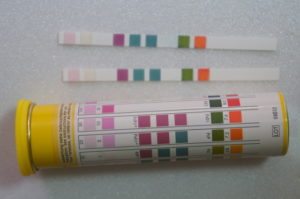
- Let's compare the mass. The method is to compare the mass of water from different sources. Two containers of the same volume are filled with different waters and weighed. The smaller the mass of water, the softer it is. Perhaps this helps to understand what the water hardness is, but the method is not suitable for a dishwasher.
- Determine the degree of soapiness. All you need to do is take regular laundry soap, soak it in water and soap your hands. If foam forms easily and is difficult to rinse off, then the water is soft. Soap has difficulty foaming in hard water. This method is also subjective.
- Scale formation rate. Another indicator by which people determine water hardness. If sediment and scale accumulate in the kettle very quickly, then the water is hard.
- Turbidity of water. You can tell whether water is hard or not by looking at the turbidity of the water; to do this, put it in a transparent bottle and put it in a dark place for 2 days. If during this time turbidity and a film have formed on the walls, then the water is hard.
- We use test strips. These strips allow you to more accurately determine water hardness. Some Bosch and Miele brand dishwashers come with strips included with the machine. Some strips are impregnated with a special composition; it is enough to immerse such a strip in water for 1 second, and then compare the result of the color development on the strip with a table, for example, presented below.
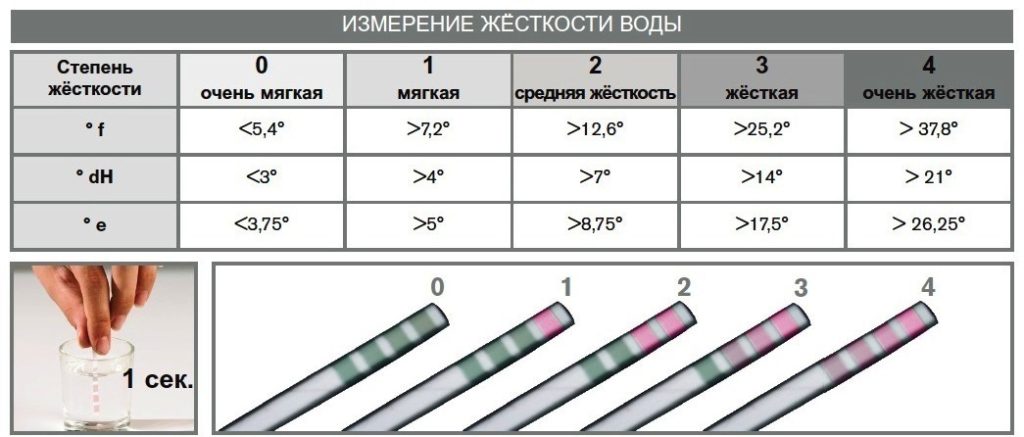
Test strips from Biosensor Aqua work a little differently. After such a strip remains in the water for 2-3 seconds, you need to wait 60 seconds and only then, comparing it with the color scale on the packaging, determine the water hardness. The scale looks like this:
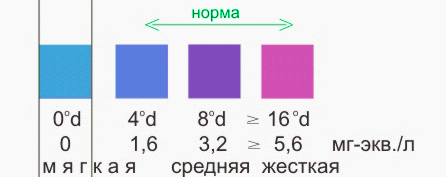
There are also strips that require special reagents to use. A small amount of water is poured into a glass and the strip is lowered, and then the reagent is added to the water a little at a time. When color appears on the test strip, the water hardness is determined from the table. These strips come with detailed instructions for use, so don’t be lazy to read them.For your information! The test strip method is the most optimal for home use; they are not expensive and the accuracy is much higher than when determining hardness using the methods described above.
- We measure hardness using a TDS meter. With such a device you can find out the exact level of water hardness in the tap. However, the device is quite expensive. If this doesn’t bother you, you can get such an assistant.
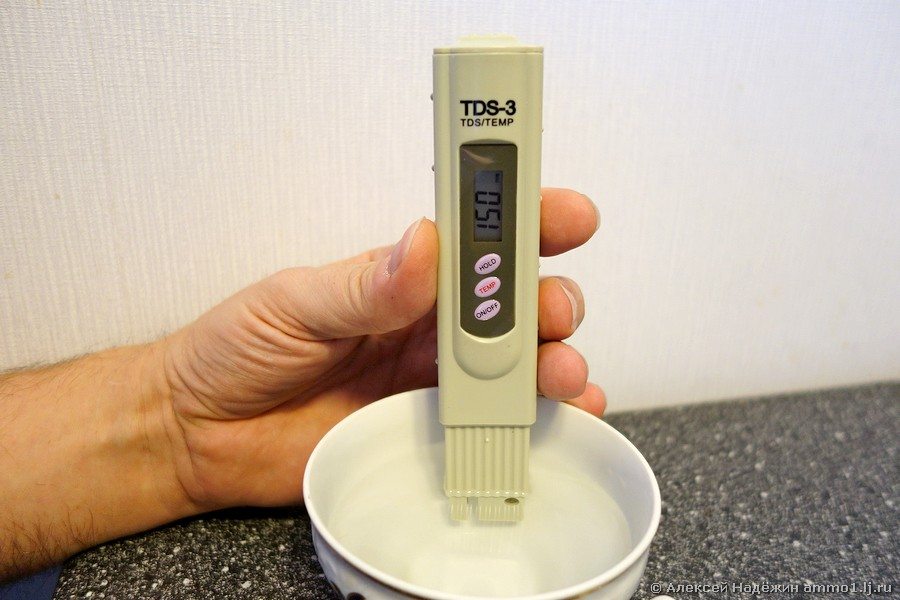
What to do after measurements, how to soften the water?
After you find out the hardness of the water in your home, you need to think about softening it, because too hard water will not only not be poured into the dishwasher, but you will also not be able to drink it. How to protect your dishwasher? First of all, don’t forget to pour on time regenerating salt into the dishwasher compartment at the bottom of the chamber.It is very important to adjust the salt consumption.
To do this, we determine the flow rate according to the table that is in the instructions. We offer an example of a water hardness table for a Bosch dishwasher.
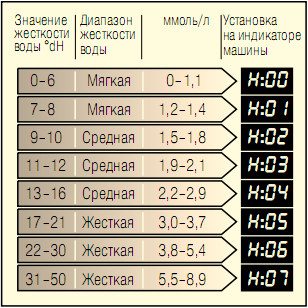
Important! Combined tablets for hard water will not replace salt, since water passes through an ion exchanger, then in the absence of salt it will simply fail, and you will have to take the car in for repair.
Another way to soften dishwasher water is to install a filter, such as a polyphosphate filter, on the water supply. The main thing is not to forget to clean it on time. Otherwise, at one point the machine will display error codes and stop washing.
Thus, determining the hardness of water at home is not difficult at all. Do not neglect this, it will help you protect your dishwasher from breakdowns, as well as optimize salt consumption. In addition, you will probably notice changes in the quality of dishwashing; streaks and deposits will disappear.
Interesting:
Reader comments
- Share your opinion - leave a comment
Categories
Washing machine repair
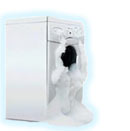

For buyers

For users

Dishwasher


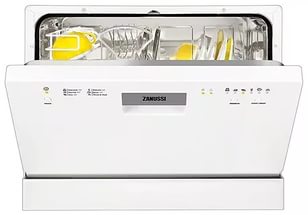

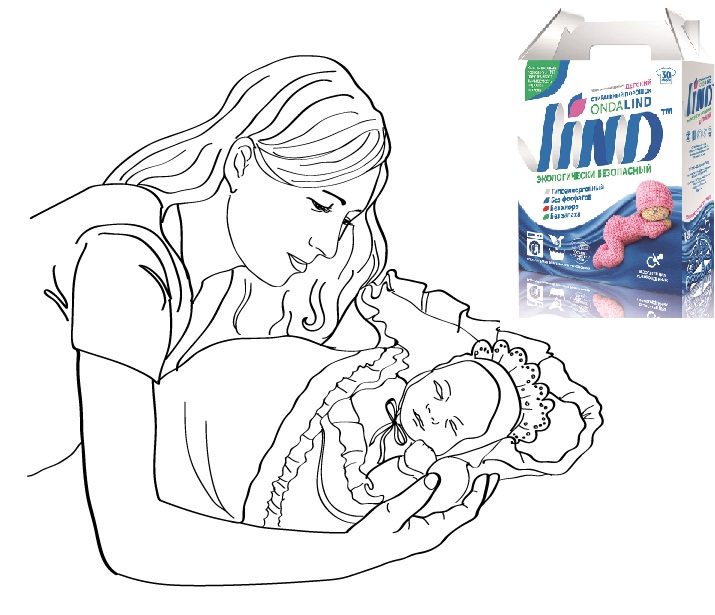


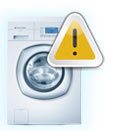
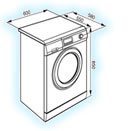


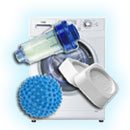


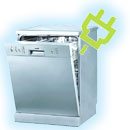

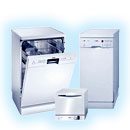
Add a comment